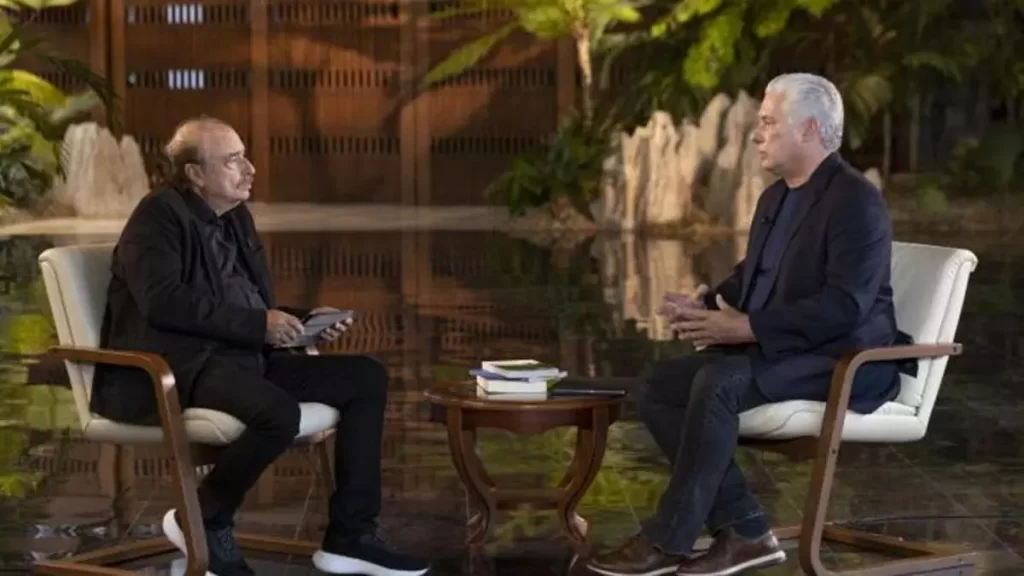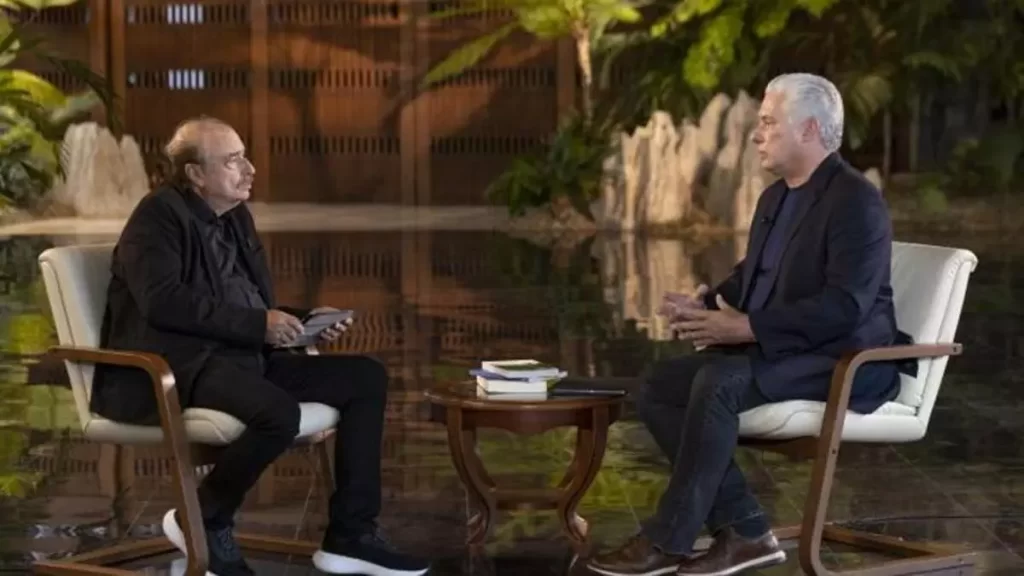The journalist presented the interview in three “blocks,”,domestic policy, economy and foreign policy, but the three merged without remedy or distinction

14ymedio, Havana, 15 May 2024 — The word “blockade” was uttered a total of 62 times in the interview that Cuban President Miguel Díaz-Canel held with Franco-Spanish Ignacio Ramonet on May 11 at the Palace of the Revolution. In the long conversation, published this Wednesday in the official media, both reiterated that the United States embargo is the main cause of the evils that afflict Cuba.
“Many people ask, if there has been a blockade for so long, what distinguishes the blockade in the current moments?” Ramonet asks Díaz-Canel, renowned hagiographer of the regime and author of the “two-voice monologue” One Hundred Hours With Fidel, to which the hand-picked president responds: “Today the blockade has a qualitatively different characteristic; today we are talking about a tightened blockade.”
Although Ramonet presented the interview in three “blocks” – domestic policy, economy and foreign policy – the three merged without remedy or distinction.
The mass protests of July 11, 2021 (’11J’), appear halfway in the dialog and undervalued
One of the most important events that has occurred on the Island in recent years, the mass protests of July 11, 2021 (commonly referred to as ’11J’), appears halfway in the dialog and undervalued. The Spanish communicator calls them a “sociological phenomenon” and considers that “although they have not been massive, they have surprised because this is not common.” Díaz-Canel avoids at all times the hundreds of protesters who ended up with long prison sentences and insists that his government “does not have a repressive response.”
What happens, as he continues alluding to 11J and other protests that resulted in arrests, is that “they commit acts of vandalism and attacks against state property, against social property, they alter public order, and that then does lead to a response that is not due to ideology… It is a judicial response, a legal response like they would happen in any other country.” In short, that day was once again to blame for the supposed “unconventional war” carried out by the United States against the Island.
Regarding the economic debacle, Díaz-Canel marks the start date as “the second half of 2019”, when the Administration of then US president, Donald Trump, “applies more than 240 measures that intensify the blockade. They suddenly cut off all our sources of income in foreign currency” and “an enormous energy and financial persecution is organized.”
Among the consequences, he also mentions that “remittances are cut off, which was an important source of income for the country.” Independent studies estimate that, in fact, since 2019, there has been a 45% drop in remittance income, although in no case has it disappeared.
Without the president ever remarking on it, in September of that year an energy crisis began to occur on the Island that, with peaks and valleys, that continues to this day. However, at that time, Díaz-Canel did not allude to the embargo, and defined the energy situation as “temporary,” resolvable with the imminen


